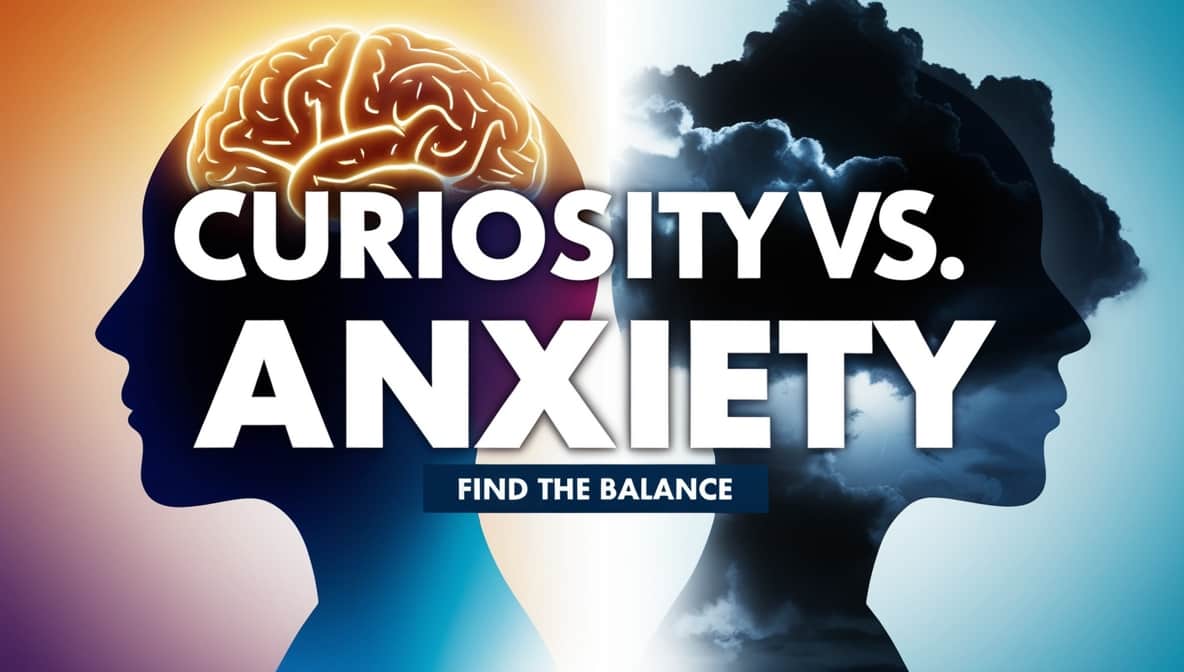Introduction
Have you ever been eager to explore something new, only to feel a sudden wave of anxiety pulling you back? Curiosity and anxiety may seem like opposites, but they’re deeply intertwined. Finding a balance between these two can unlock greater creativity, emotional resilience, and mental well-being. Let’s explore how curiosity and anxiety interact and discover practical strategies to channel curiosity without letting anxiety take over.
Understanding the Connection Between Curiosity and Anxiety
Curiosity drives us to explore the unknown, while anxiety warns us of potential risks. This dynamic often creates tension. For instance:
- Curiosity might urge you to ask a question in a meeting.
- Anxiety might whisper, What if you sound foolish?
This interplay is rooted in how the brain handles uncertainty. When you’re curious, dopamine—a neurotransmitter linked to motivation—is activated. At the same time, the amygdala, responsible for fear and anxiety, may signal caution.
Also check: Why Our Brains Love a Good Mystery
Why Finding Balance Matters
An imbalance between curiosity and anxiety can impact your personal growth:
- Too Much Anxiety: You may avoid new experiences, missing out on opportunities for learning and self-improvement.
- Excess Curiosity Without Caution: Impulsivity can lead to poor decisions or even dangerous situations.
For example, exploring a new career path might feel thrilling. However, ignoring practical concerns like financial stability could lead to stress down the line.
Practical Ways to Balance Curiosity and Anxiety
Start Small
Instead of diving headfirst into the unknown, take manageable steps. If you’re curious about public speaking, begin by speaking in front of close friends or joining a small group discussion.Embrace Uncertainty Gradually
Anxiety often stems from fear of the unknown. Build tolerance by gradually exposing yourself to uncertain situations. For instance, try visiting a new place or learning a skill that feels slightly outside your comfort zone.Practice Mindfulness
Mindfulness helps you stay grounded when anxiety strikes. Techniques like deep breathing or meditation can calm your mind, allowing curiosity to flourish without fear taking over.Ask Reflective Questions
When anxiety creeps in, ask yourself:- What’s the worst that could happen?
- What’s the best that could happen?
This perspective shift often reveals that your fears are exaggerated.
The Role of Personality in Curiosity and Anxiety
Personality traits influence how people balance curiosity and anxiety. For example:
- High Openness to Experience: These individuals are naturally curious but may need strategies to assess risks.
- High Neuroticism: Those prone to anxiety may benefit from structured environments that make exploration feel safer.
Benefits of Achieving Balance
Striking the right balance doesn’t just reduce anxiety—it also fosters growth. When curiosity is tempered with thoughtful caution, you can:
- Take calculated risks that lead to personal and professional success.
- Develop emotional resilience by learning to navigate uncertainty.
- Enhance relationships by engaging in meaningful conversations and exploring diverse perspectives.
Conclusion
Curiosity and anxiety are like two sides of the same coin. By understanding their interplay, you can harness the power of curiosity while keeping anxiety in check. Start small, embrace uncertainty, and practice mindfulness to strike a healthy balance. Remember, the right dose of curiosity can transform your life—one small step at a time.









